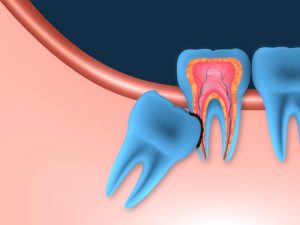 If you suffer from dental anxiety of any kind, you might be surprised to learn how many people are just like you. It is estimated that somewhere between 50 and 80% of American adults suffer from some level of dental anxiety.
If you suffer from dental anxiety of any kind, you might be surprised to learn how many people are just like you. It is estimated that somewhere between 50 and 80% of American adults suffer from some level of dental anxiety.
It is a common issue that can result in avoidance of any kind of dental procedure, big or small, even if that means dealing with significant discomfort or other oral health issues.
However, avoiding dental procedures can potentially incur even worse oral health problems. A great example of a common dental procedure that is best not delayed is wisdom tooth removal.
Many people who have impacted wisdom teeth may put off removing them for various reasons. But it is important to avoid delaying this dental procedure in order to prevent a range of consequences.
Bad Breath (Halitosis)
This issue may not be a medical emergency, but that does not mean it cannot affect your quality of life significantly. An impacted wisdom tooth can be difficult to clean properly, which can cause food debris to become trapped around it. Plaque will then develop in the area, resulting in bad breath that is not easy to rid yourself of.







